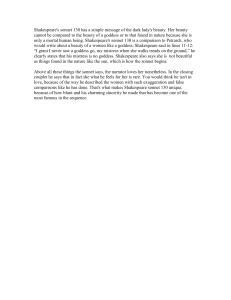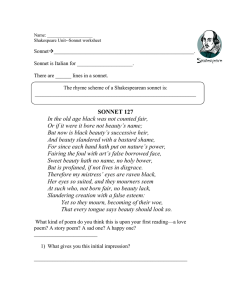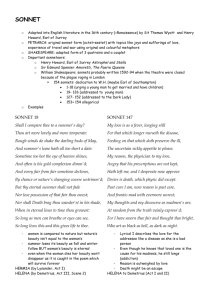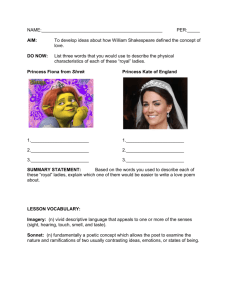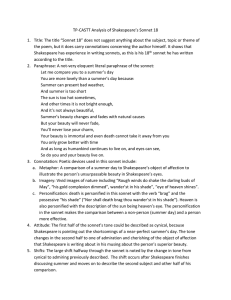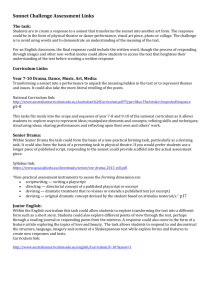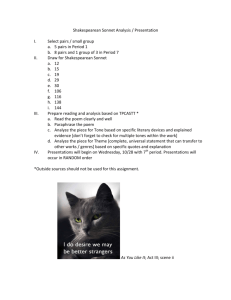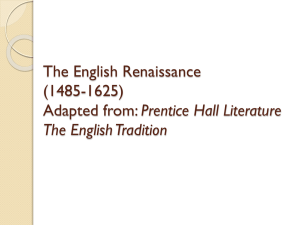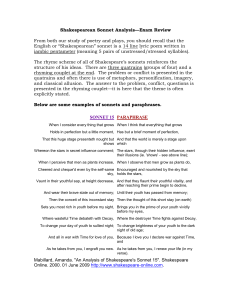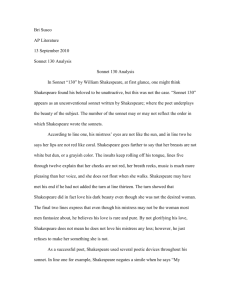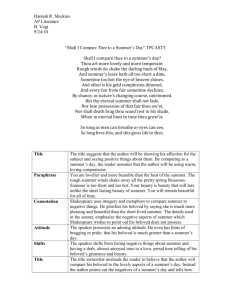Sonnet 20 - marilenabeltramini.it
advertisement
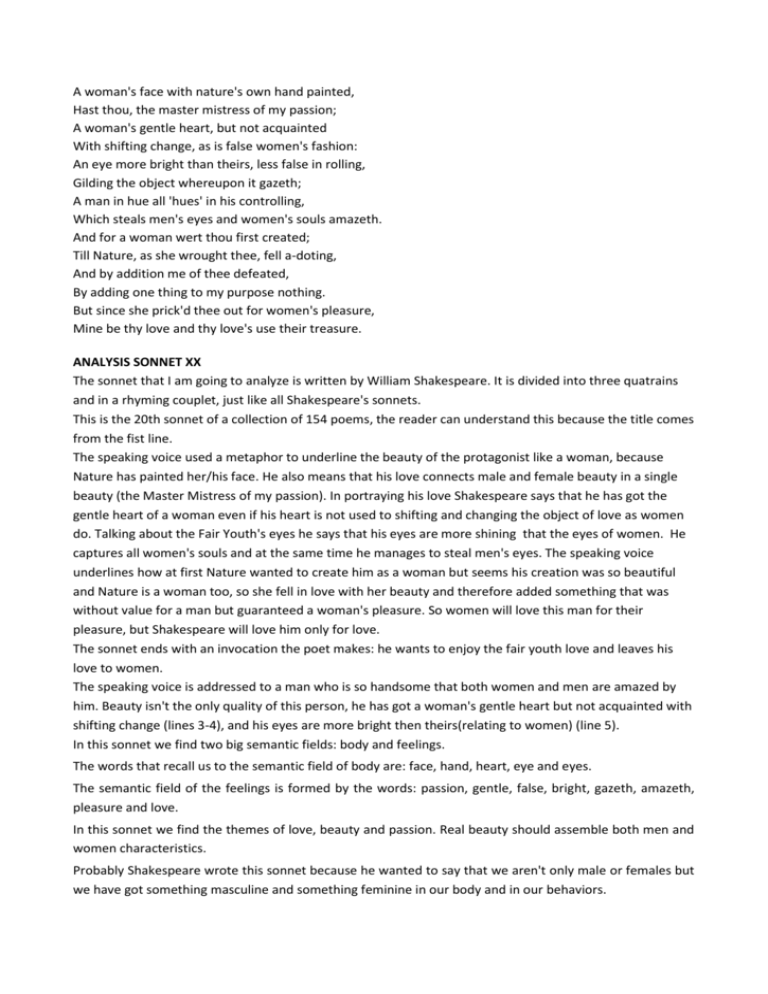
A woman's face with nature's own hand painted, Hast thou, the master mistress of my passion; A woman's gentle heart, but not acquainted With shifting change, as is false women's fashion: An eye more bright than theirs, less false in rolling, Gilding the object whereupon it gazeth; A man in hue all 'hues' in his controlling, Which steals men's eyes and women's souls amazeth. And for a woman wert thou first created; Till Nature, as she wrought thee, fell a-doting, And by addition me of thee defeated, By adding one thing to my purpose nothing. But since she prick'd thee out for women's pleasure, Mine be thy love and thy love's use their treasure. ANALYSIS SONNET XX The sonnet that I am going to analyze is written by William Shakespeare. It is divided into three quatrains and in a rhyming couplet, just like all Shakespeare's sonnets. This is the 20th sonnet of a collection of 154 poems, the reader can understand this because the title comes from the fist line. The speaking voice used a metaphor to underline the beauty of the protagonist like a woman, because Nature has painted her/his face. He also means that his love connects male and female beauty in a single beauty (the Master Mistress of my passion). In portraying his love Shakespeare says that he has got the gentle heart of a woman even if his heart is not used to shifting and changing the object of love as women do. Talking about the Fair Youth's eyes he says that his eyes are more shining that the eyes of women. He captures all women's souls and at the same time he manages to steal men's eyes. The speaking voice underlines how at first Nature wanted to create him as a woman but seems his creation was so beautiful and Nature is a woman too, so she fell in love with her beauty and therefore added something that was without value for a man but guaranteed a woman's pleasure. So women will love this man for their pleasure, but Shakespeare will love him only for love. The sonnet ends with an invocation the poet makes: he wants to enjoy the fair youth love and leaves his love to women. The speaking voice is addressed to a man who is so handsome that both women and men are amazed by him. Beauty isn't the only quality of this person, he has got a woman's gentle heart but not acquainted with shifting change (lines 3-4), and his eyes are more bright then theirs(relating to women) (line 5). In this sonnet we find two big semantic fields: body and feelings. The words that recall us to the semantic field of body are: face, hand, heart, eye and eyes. The semantic field of the feelings is formed by the words: passion, gentle, false, bright, gazeth, amazeth, pleasure and love. In this sonnet we find the themes of love, beauty and passion. Real beauty should assemble both men and women characteristics. Probably Shakespeare wrote this sonnet because he wanted to say that we aren't only male or females but we have got something masculine and something feminine in our body and in our behaviors.
